
IN THE VILLAGE OF GONGDONG outside the central Chinese city of Xi’an, construction projects have kept archaeologists busy since the summer of 2020. Thus far, more than 100 ancient tombs have been uncovered in the area, some dating to as early as the Han Dynasty (206 B.C.–A.D. 220). Last June, a team of archaeologists from the Shaanxi Academy of Archaeology unearthed a large Tang Dynasty (A.D. 618–906) family tomb at Gongdong. Classical Chinese culture flourished during the Tang Dynasty, and elite tombs dating to that period are known for their intricate stone- and brickwork and are often filled with numerous artifacts. The newly discovered tomb, belonging to a military commander named Yuan Daqian and his wife, Luo Wanshun, was no different. Archaeologists found more than 100 ceramic vessels and figurines in the multichambered tomb, despite the fact that tomb raiders had looted it in antiquity.
Tang Dynasty ca. A.D. 700
One discovery stood out from the rest. In elite Chinese tombs, archaeologists often find square funerary stones, referred to as epitaphs, that are inscribed with ornate calligraphy that relates the accomplishments of the dead at length. The epitaphs are accompanied by stone plaques known as epitaph covers bearing brief descriptions of the tomb’s occupant. Epitaph covers and epitaphs were typically wrapped together in silk and placed near the front entrance to the main room of tombs, where the dead were interred—but in this tomb they had been pushed aside. “When we entered the couple’s tomb, we saw that the epitaphs and epitaph covers had been displaced by tomb raiders,” says Shaanxi Academy of Archaeology scholar Zhang Yanglizheng.
Diese Geschichte stammt aus der January/February 2022-Ausgabe von Archaeology.
Starten Sie Ihre 7-tägige kostenlose Testversion von Magzter GOLD, um auf Tausende kuratierte Premium-Storys sowie über 8.000 Zeitschriften und Zeitungen zuzugreifen.
Bereits Abonnent ? Anmelden
Diese Geschichte stammt aus der January/February 2022-Ausgabe von Archaeology.
Starten Sie Ihre 7-tägige kostenlose Testversion von Magzter GOLD, um auf Tausende kuratierte Premium-Storys sowie über 8.000 Zeitschriften und Zeitungen zuzugreifen.
Bereits Abonnent? Anmelden
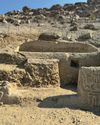
ORIGINS OF PERUVIAN RELIGION
While investigating looters' holes at the site of La Otra Banda in northern Peru's Zaña Valley, archaeologist Luis A. Muro Ynoñán of the Field Museum and the Pontifical Catholic University of Peru spotted carved blocks around seven feet below the surface.

ISLAND OF FREEDOM
Many of the enslaved Africans sent to Brazil beginning in 1549 were from what is now Angola, where one of the most widely spoken languages was Kimbundu.
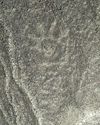
NAZCA GHOST GLYPHS
From the 1940s to the early 2000s, geoglyphs were discovered in the Nazca Desert of southern Peru depicting animals, humans, and other figures at the rate of 1.5 per year.

COLONIAL COMPANIONS
The ancestry of dogs in seventeenth-century Jamestown offers a window into social dynamics between Indigenous people and early colonists.
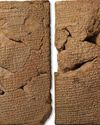
BAD MOON RISING
The British Museum houses around 130,000 clay tablets from ancient Mesopotamia written in cuneiform script between 3200 B.C. and the first century A.D.
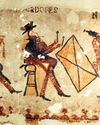
DANCING DAYS OF THE MAYA
In the mountains of Guatemala, murals depict elaborate performances combining Catholic and Indigenous traditions
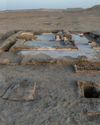
LOST GREEK TRAGEDIES REVIVED
How a scholar discovered passages from a great Athenian playwright on a discarded papyrus

Medieval England's Coveted Cargo
Archaeologists dive on a ship laden with marble bound for the kingdom's grandest cathedrals

Unearthing a Forgotten Roman Town
A stretch of Italian farmland concealed one of the small cities that powered the empire
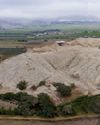
TOP 10 DISCOVERIES OF 2024
ARCHAEOLOGY magazine reveals the year's most exciting finds